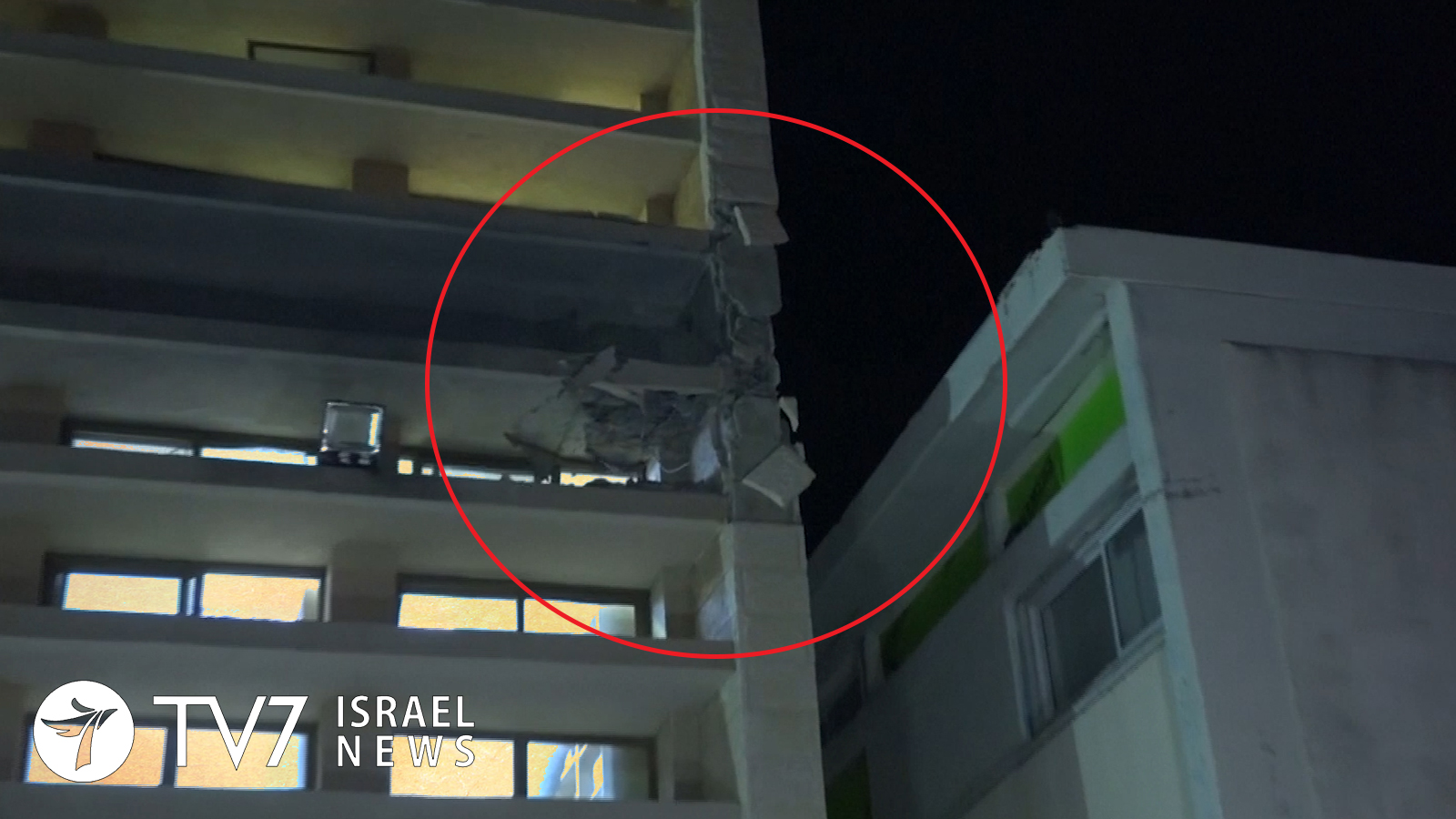Palestinian Islamists have yet again launched a rocket from the Gaza Strip toward Israel’s southern communities, as renewed concerns of a possible flareup continue to mount.
In contrast to the previous night, in which an incoming projectile was successfully intercepted by the IDF’s Iron Dome anti-rocket Defense System; last night, a religious Jewish seminary-school in the southern Israeli town of Sderot sustained a direct hit, but thankfully – no injuries were reported.
According to Asher Pizen, who is a resident of Sderot: “We were at the synagogue; we were in the middle of the weekly lesson. We heard the sirens, directly after we heard the explosion we went outside to check what is going on. We saw that a rocket hit the building.”
In response to the rocket-fire, Israeli Air-Force fighter jets targeted a number of militant installations throughout the Gaza Strip, which reportedly belong to the Islamist Hamas and Islamic Jihad organizations.
According to the IDF spokesperson’s unit, the bombardment targeted “terror infrastructure in military compounds and a Hamas naval force military compound,” and further reiterated Jerusalem’s resolve to “continue operating against any attempt to harm Israeli civilians.”
Despite the fact that no terror-organization claimed responsibility for last night’s rocket fire, the IDF underscored that it “holds Hamas responsible for all events transpiring within the Gaza Strip and emanating from it.”
Nevertheless, growing frustrating among Israel’s southern residents brought about renewed demands for a wider-military operation against the Islamist-infested Palestinian strip. While vowing to maintain continued resilience in the face of repeated attacks, the Mayor of the town of Sderot Alon Davidi urged Prime Minister Benjamin Netanyahu to launch an operation that will end the suffering of Israel’s southern civilian communities. Davidi said: “The situation that the organization of the Hamas and the Jihad that continue to make this attack for to Sderot, they try to destroy the town, they try to make our town like a ghost town. First, I want to say to the leadership of the Hamas, you will never never succeed, forget it. We will continue to stay here, we continue to develop our town. And, I say to the Prime Minister of Israel you must decide to make the decision to go again, to make operation in Gaza like we made in protective edge few years ago.”
The resumed Palestinian rocket-fire from the Hamas-controlled territory toward the Jewish State followed a decision that was made by the Israeli Military’s Coordinator of Government Activities in the Territories two days ago, to impose a full naval blockade on the Gaza Strip until further notice, in response to a significant increase of incendiary terrorism that emanates from the Palestinian enclave.
Yesterday alone, residents of Israel’s Gaza periphery communities counted 15 balloons that according to the police spokesperson’s unit, “some of which contained explosives.” During the day, a suspicious object that was tied to a cluster of balloons was found in an agricultural field in the Sha’ar HaNegev Regional Council. The explosive-device was defused by police sappers, thankfully preventing civilian casualties or damage. With a dozen blazes contained after several hours of an intensive operation by Israel’s southern brigade of the Fire and Rescue Authority, the overall count amounts to some 120 separate blazes that were deliberately caused by incendiary devices.
In response to the situation, Eshkol Regional Council Chairman Gadi Yarkoni voiced frustration, saying that the “bizarre endless ritual” has plagued southern Israel “for a year and a half now,” during which the Islamist organizations in Gaza “send incendiary balloons that cause fires, the IDF employs punitive measures, they respond by opening fire—and then we find ourselves back in a 48-hour grinding round of escalating violence.” Yarkoni noted that “There have been 11 such rounds to date, and they came to nothing.” Voicing his furry with the policy of the Israeli government, the Eshkol regional Council head underlined that he “cannot explain the policy and its justification to the residents (within his regional council) because (he does not understand) what the policy is.” Regardless of what the leadership in Jerusalem may consider as its strategy, “It seems that the system is not working,” and consequently urged Prime Minister Benjamin Netanyahu to bring about “a dramatic change in this (intolerable) situation.”
Meanwhile in the Gaza Strip – Palestinian fishermen have voiced their own frustration with the presiding situation. Akram Saiyed, a Gaza Fisherman who refused to conceal his rage with both Israel and the Islamist leadership in Hamas-controlled enclave, claimed that more than 5,000 fishermen have become victims of circumstance, because of their inability to control those who launch rockets and incendiary devices toward Israel, which consequently led to the presiding naval blockade. In his words: “More than 5,000 fishermen depend on the sea for their livelihood, so how many families live off the sea? Today you (referring to Israel) are closing (the fishing zone at) the sea and we are not going to work, why? What are we guilty of? We don’t fire rockets at you, or send balloons. What are we guilty of?”
Despite the clear facts on the ground, the Islamist Hamas continues to blame Israel for the latest escalation. That said, Hamas Spokesperson Hazem Qassim indicated his organization’s aspiration to maintain the understandings based on the Egyptian-mediated cessation-of-hostilities. He said: “The attacks on the Gaza Strip is a continuos Israeli aggression, closing (the fishing zone at) the sea is a retreat from the agreements that was reached under Egyptian mediation and that makes the Palestinian situation more complicated, worsen the humanitarian crisis and raise the tension in the Gaza Strip. Therefore, the meditators should pressure the occupation (Israel) to implement the agreements, break the siege and not lead the region to further escalation.”
